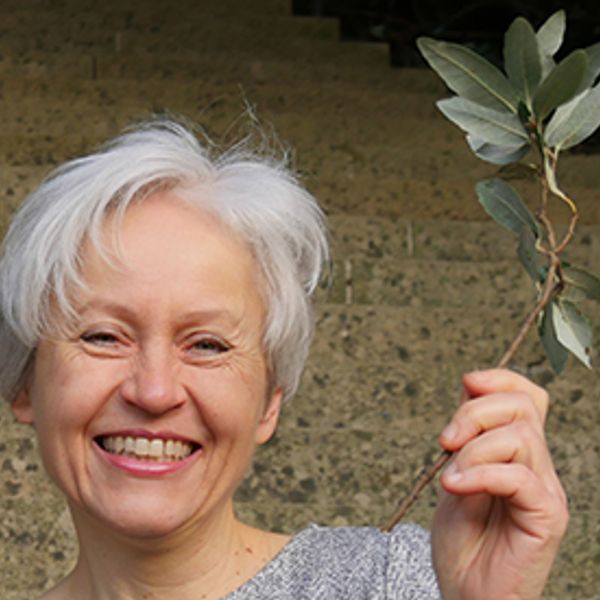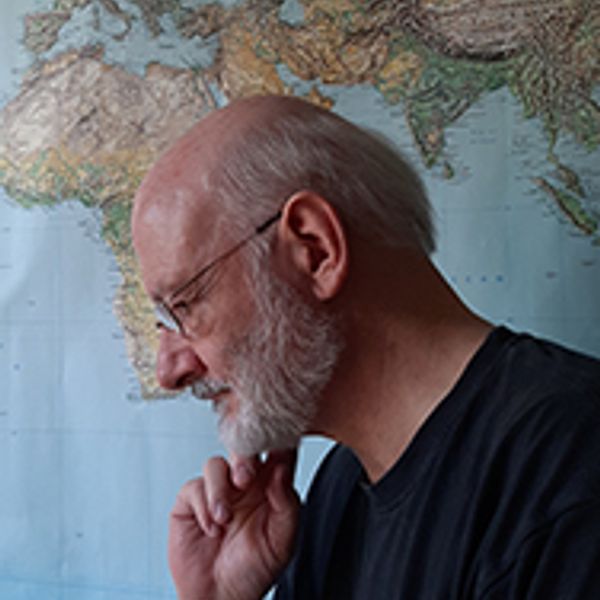Lia Purpura, Parasol Mushroom (detail), featured in AGNI 102
peregrine
Enter and leave the same fields at the same time each day, soothe the hawk from its wildness by a ritual of behaviour as invariable as its own. —J. A. Baker
at noon each day
stooping over the shardfield
of the hour in which i hatched
the egg sac burst the taut sheath
of the wind the rodent’s scream. lost
my parents (you know how few
we) a stranger came fed
instructed me
at noon each day
stooping over the shardfield
the squares of orchards
hedges fields whitethorn
pinkthorn crunching the white
poisoned grass the jutting
clods (how few we)
at 3,000 feet
of shatter-winged
face
tercel rush
dorsal-slated
speed through the deep
lagoons of the heavens
self-flinger
from the crests of the cirrus
from the thick-barked earth-air
ripper and blade (out of
the sun, sure)
dash
to the ground
sinew seam streak
wave-world surging
color of pounded wood
sinking land
the feathers round my eyes
absorbed light. so the
hunter can become the
hunted? squeeze into
your four-eyed head
the swooping wing
bolting through your sleep
swimming almost snake-
like gliding through a plowed
field. ducks call
sure.
you craving. above
the estuary seek
wing-hold in the salt-flushed
sleekness of the air.

Ulrike Draesner
Ulrike Draesner, one of the most prominent poets writing in German today, is the author of eight volumes of poetry, including gedächtnisschleifen (memory loops, 1995), für die nacht geheuerte zellen (cells hired for the night, 2001), and subsong (subsong, 2014); seven novels, the most recent of which is Schwitters (Penguin, 2020); three books of short stories; and seven volumes of essays. A translator of Gertrude Stein, H. D., and Louise Glück, she has received many literary awards, most recently the Nicolas Born Prize (2016), the Gertrud Kolmar Prize (2019), and the GEDOK-Prize (2020). She lives in Berlin and Leipzig, where she directs the Institute for German Literature. (updated 10/2020)

Iain Galbraith
Iain Galbraith is a poet and essayist whose most recent publications include a volume of poems, The True Height of the Ear (Arc, 2018), and translations of Esther Dischereit’s Sometimes a Single Leaf: Selected Poems (Arc, 2020) and Reinhard Jirgl’s novel The Unfinished (Seagull, 2020). He has received several prizes for his work, including the Stephen Spender Prize (2014), the Popescu Prize for European Poetry Translation (2015), and the Schlegel-Tieck Prize in 2016 for Jan Wagner’s Self-portrait with a Swarm of Bees: Selected Poems (Arc), and again in 2019 for Esther Kinsky’s prose work River (Fitzcarraldo). He was born and grew up in the West of Scotland and lives in Wiesbaden, Germany. (updated 10/2020)
